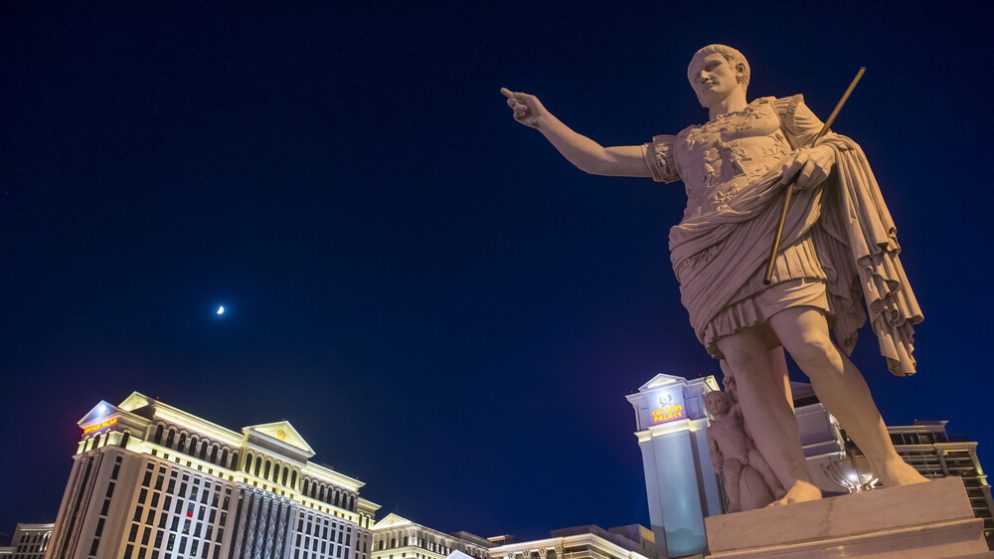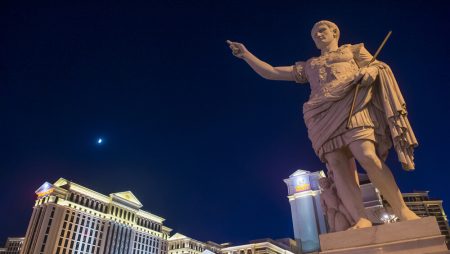

Caesars Entertainment is no stranger to controversy, especially where the New Jersey Division of Gaming Enforcement is concerned. Just recently, the DGE slapped Caesars with a fine worth $46,000 for hiring casino staff without the proper casino licenses and registrations.
Caesars had hired the said staff in various departmental positions across the brand. In total, the DGE found that Caesars had hired 17 staff members in different departments such as marketing, compliance, anti-money laundering, IT, and accounting.
In particular, the DGE brought the action of complaint against Harrah’s AC, Tropicana AC, Boardwalk Regency, and their parent company Caesars Entertainment for failing to comply with statutory and regulatory requirements established in the Casino Control Act.
In addition to employing 17 staff members that don’t have the requite casino employee registrations, the DGE also fined Caesars for employing an additional 29 casino hotel alcoholic beverage staff without such staff holding the proper employee registrations.
Owing to these infractions, Caesars has agreed to pay a civil monetary fine amounting to $46,0000. Caesars has agreed to pay the fine in recognition of the seriousness of its infractions related to non-compliance with the rules of DGE
Individuals that work in casinos are required to have registrations or licenses based on the type of job that they perform. In many instances, non-management positions that are not associated with gaming activities of any kind generally do not need a license.
However, all non-management gaming-related casino staff such as security guards, cashiers at the cage, as well as dealers must all be registered with the Division of Gaming Enforcement.
Casino staff members that take part in the operation of a casino in any supervisory capacity or that are allowed to make discretionary decisions on the operations of a casino are also required by the DGE to have a casino key employee license.
Such staff members include credit executives, cashier supervisors, shift bosses, junket supervisors, marketing professionals, simulcasting facility managers, pit bosses, as well as managers all need a casino key employee license. Before a casino key employee license can be issued, each of the applicants must prove that they are responsible and that they are financially stable.
Any casino staff member that holds a casino key employee license should also be a resident of the state unless a waiver from the DGE is given. Now and then, the commission does issue temporary casino licenses. Temporary casino licenses are commonly used whenever a casino needs to fill up a vacancy quickly. Once issued, a temporary casino license is only valid for 9 months unless it is otherwise ended.
Once provided with a casino key employee license, an applicant is required to submit information and documentation to the DGE for review. This review is done by the commission to assess that the applicants continue to meet all the requirements set. To get issued a casino key employee license, one must be prepared to part with an application fee of $750.
This isn’t the first time that Caesars is dealing with the effects of a scandal.
In November 2022, Caesars Sportsbook was slapped with a regulatory fine by the DGE for failing to pay out a winning hockey wager worth approximately $27,000. In October 2022, the gaming regulators in the state were forced to look into Caesars’ affairs when a punter from New Jersey complained that the casino operator wasn’t adhering to its gambling terms and conditions.
The punter whose identity remains confidential claims that he placed a wager on December 22nd, 2021 during the Kontinental Hockey League. The Kontinental Hockey League is one of the most popular ice hockey leagues in the world with a strong support system in China, Belarus, Russia, as well as Kazakhstan. In a dispute that later more than 1 year, the punter claimed that he risked the over on the match’s total score set, which at the time stood at 4.5 goals.
When the ice hockey match went into overtime tied 2-2, a final 5th goal was consequently scored. Caesars sportsbook claimed that the wager was lost since overtime generally doesn’t impact the over or under-point spread. Fortunately for the New Jersey punter though, DGE concluded otherwise.
After proper investigations were carried out by Chuck Kimmel, deputy attorney general for the DGE, it was determined that nowhere in the sportsbook’s fine print did it inform its customers that goals scored during overtime don’t count towards the line’s cited value. After investigations were concluded, Caesars agreed to pay the punter in full while also accepting a regulatory fine of $500 for its error.
Under the Casino Control Act, the DGE is allowed to penalize a sportsbook license if the license is found to have violated the house rules. The monetary penalties awarded can climb to $2000.
In July, Caesars was forced to part with a much higher fine of $50,000 for many repeated infractions as detailed by the DGE. The DGE claims that the brand failed to register and license key employees for more than a year, similar to its most recent $46,000 fine. Caesars self-reported the regulatory shortcoming in May 2021.
Caesars first notified the DGE of its shortcoming on May 3rd, 2021 after realizing that 7 of its staff members in the IT department had been on their payroll without active casino employee registrations. Upon realizing the infractions, Caesars told the DGE that it would probe its other departments to ascertain that all departments were compliant.
That probe revealed that Caesars did indeed have additional employees that were supposed to be registered with the DGE- but weren’t. Initially, the DGE wasn’t supposed to penalize Caesars since the company had self-reported the infractions and resolved the issue in a timely manner. However, after Caesars carried out a more detailed probe that unearthed more infractions, the DGE was forced to act swiftly.
Final Thoughts
The DGE regulates all 9 casinos in Atlantic City ensuring that the casinos maintain the proper standards while creating a safe and fair environment for patrons. The penalties that the DGE hits operators with are designed to prevent future infractions, as well as ensure that operators in the state act accordingly.





